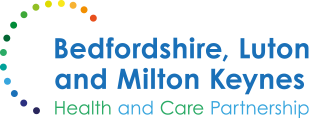Feeding baby and moving on to solids
Key health professionals for delivering this care:
- Midwives
- Health visitors
- Nursery nurses
Key messages:
- Plaque bacteria in the mouth feed on sugar making acid which attacks teeth and causes tooth decay (holes). It's not just about the amount of sugar in sweet food and drinks, but how long and how often the teeth are in contact with sugar. Tooth decay is painful and affects eating and sleeping. Decayed baby teeth may have to be extracted (taken out) early, and this can cause the adult teeth to end up in the wrong position
- The safest drinks for teeth are milk and water
- Breast milk provides the best nutrition for babies and is the only food or drink babies need for around the first six months of their life. Formula milk is the only suitable alternative to breast milk
- Breast feeding up to 12 months is associated with a decreased risk of tooth decay
- It's OK to use bottles for expressed breast milk, formula milk, or cooled boiled water
- Do NOT put juices or sugary drinks in bottles as this will bathe the teeth in sugar for long periods of time, quickly causing tooth decay
- From 6 months old, you can offer babies drinks in a non-valved free-flowing cup (not a sippy cup as these still require the baby to suck like a bottle). Move completely from a bottle to a free-flow cup by 12 months
- When your baby starts eating solid foods, encourage them to eat savoury food and keep drinks to milk and water. Check if there's sugar in pre-prepared baby foods (including the savoury ones). Rusks and baby drinks are not needed as part of a healthy diet and should be avoided
- Avoid giving your baby biscuits, sweets or dried fruit. However, if you choose to include them, they should only be eaten at mealtimes. Milk and water are the safest drinks, but if you choose to give your baby juice, please dilute it 1-part juice to 10 parts water, and only give it in a free flow cup at mealtimes
- You may see sugar written on food packaging using different words. Sucrose, glucose, dextrose, maltose, fructose and hydrolysed starch, invert sugar, syrup, honey, raw sugar, brown sugar, cane sugar, muscovado sugar and concentrated fruit juices are all sugars. Even if it is marketed as ‘natural’ or ‘organic’ sugar, it will be harmful to teeth
- At bedtime or during the night, only give your child breast milk, formula or cooled boiled water
- If your child needs medicine, ask your pharmacist or GP if there's a sugar-free option
Linked resources:
- Sugar: the facts
- Breast feeding and tooth decay: core messages for dental teams and healthcare professionals
- Healthy Eating Right from the Start video (from Henry)
- The Food Scanner app from Change4Life can help you check how much sugar your family is having.



